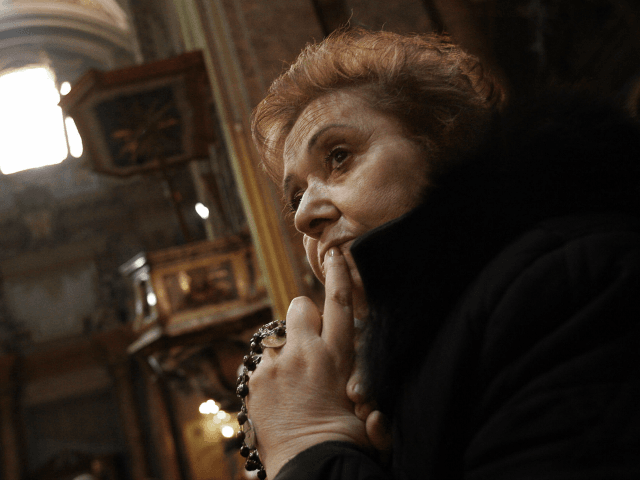Americans United for Separation of Church and State (AUSCS) has chosen Rachel K. Laser, an abortion-rights and LGBT-rights activist, as its new executive director in an ongoing battle against conservative Christianity.
Prior to coming to AUSCS, Laser worked for Planned Parenthood as well as leading the Pharmacy Refusal Project at the National Women’s Law Center, an initiative opposing the rights of pharmacists to refuse to fill certain prescriptions on grounds of religious or moral objections. Laser was also deputy director of advocacy for Reform Judaism and is the first Jewish director of AUSCS.
Laser, whose role model is Supreme Court Justice Ruth Bader Ginsberg, will focus her war especially on Christians as she endeavors to redefine freedom of religion as “a diverse, vibrant country, and not a monolithic, culturally favored religion in this country.” Although initially AUSCS was founded in opposition to Catholics, it developed over the years into a thoroughly anti-Christian organization, defending atheists and religious minorities against America’s traditionally Christian culture.
Over the years, AUSCS has consistently opposed school choice for religious parents, conscientious exemption for believers to opt out of government-mandated programs and the freedom of conservative citizens to abstain from advocacy for activities they see as immoral—such as gay marriage.
In 2014, AUSCS started a campaign against a war memorial in Columbia, Missouri, honoring two local soldiers who died in Operation Desert Storm, because the memorial featured the Christian symbol of an ichthys or “Jesus fish.” The town removed the memorial against the wishes of the two soldiers’ parents, replacing it with another one lacking any religious symbol.
Later that same year, AUSCS took up the cause of the Satanic Temple, vowing to sue the state of Florida if Satanists were not permitted to put up a display alongside a Christian Nativity scene. The display had been banned in previous years as being “grossly offensive.”
On the contrary, when the Christian-owned Hobby Lobby company was awarded an injunction in 2013, exempting them from paying for abortion-inducing drugs that violated their beliefs, AUSCS said the judges were wrong. “This isn’t religious freedom; it’s the worst kind of religious oppression,” executive director Barry Lynn said at the time.
Harnessing the anger of the Trump resistance movement, Laser intends to undermine traditional ideas of religious liberty while attempting to convince Americans that true religious liberty is opposed to conservative Christianity.
“We need to awaken that awareness; we need to awaken the notion that religious liberty undergirds the separation of church and state,” she said in an interview with the Washington Post published Wednesday. “The two can not only coexist but are tied at the waist.”
As Washington Post writer Michelle Boorstein tweeted, “Religious conservatives have totally dominated and defined the debate about religious freedom and what should constitute church-state relations. This woman is on a mission to change that.”
Rejecting traditional notions that religious freedom is rooted in the dignity of the person and precedes the state, Laser insists that this liberty stems from a radical separation of church and state, and therefore religious belief must always yield to secular principles.
“We need to remember that it’s not intuitive to everyone that separation of church and state is the foundation of religious freedom,” Laser said recently. “We must make clear that despite our ideals, Christianity has often held a special cultural status in our country, and minority religions and atheism have often been disadvantaged.”
We must “continue to make clear how inextricably tied our issue is to so many others that are under attack today – including reproductive freedom, LGBTQ equality and racial justice – and continue to grow our coalitions to reflect this reality,” she said.
Legal scholars have noted, however, that the expression “separation of church and state” appears nowhere in the U.S. Constitution, which refers instead to non-establishment of a state religion and freedom for religious practice.
“The Founding Fathers saw religion as indispensable to the moral foundation of the nation they were creating,” says John Eastman, professor of law at Chapman University.
Laser has made it clear she opposes Trump’s outreach to religious sisters, Christian bakers and those who believe faith has public consequences.
“But we are also witnessing an alarming moment in American history,” she said. “Our country’s top leaders are failing to honor America’s promise to separate religion and government, which is the foundation of freedom of religion and conscience for all.”
Last month, President Trump declared January 16, 2018, as “Religious Freedom Day,” pledging his ongoing defense of religious liberty.
“No American — whether a nun, nurse, baker, or business owner — should be forced to choose between the tenets of faith or adherence to the law,” Mr. Trump wrote in a presidential proclamation.
In his proclamation, the President stated that the American Founders, “seeking refuge from religious persecution, believed in the eternal truth that freedom is not a gift from the government, but a sacred right from Almighty God.”
The Rev. Neal Jones, a Unitarian Universalist pastor who leads the AUSCS board, said that despite President Trump’s ostensible support for religious freedom, he is actually its enemy.
“In my lifetime, I don’t think I’ve experienced such an overall assault on the freedom of religion and conscience as I have since the election of Donald Trump,” Jones said. “It seems the ploy by the religious right these days is to use freedom of religion — in quotes — as an excuse to violate people’s civil rights. We were looking for a leader who is up to the fight, understands the issues and has a real fire in the belly to carry on the banner of separation.”
Follow Thomas D. Williams on Twitter Follow @tdwilliamsrome

COMMENTS
Please let us know if you're having issues with commenting.